Okay, I Found More Info On The Article Where It Says That Vash Stays Away From People So He Doesn’t
Okay, I found more info on the article where it says that Vash stays away from people so he doesn’t fall in love, and some highlights (translated by Google)
The discussion about the typhoon’s non-killing and anti-killing is actually not aesthetic. At first, I just thought it would be very interesting for the main character, who is obviously a strong shooter, to solve problems with a gun instead of a gun, But sure enough, when it comes to the issue of life and death, it will become heavy, and as a result, it has been confronted with the story. At the end of the confrontation, I came to a conclusion that people can hurt each other because they don’t understand each other. If they understand each other, the weight of life will become completely different. The typhoon has lived on this planet for so long, and through the interaction with people, everyone’s life is engraved in their hearts. In the end, the fact that human beings recognize, communicate and connect with each other will become a force to restrain violence, which is also the meaning of the word “family” (inside the body) in TRIGUN.
-
The setting that the pastor’s appearance does not match his actual age was decided on the way. I felt it after reading the pastor’s side comics, but this setting is still great, especially when I think back to the pastor’s childish behavior in the early days, like deliberately taking chili sauce. If you pour it on the wound of the bad guy, you will feel like he is a big boy XD
-
The typhoon in the ending seems to have completely black hair, but there is still a little golden part, so he will not die immediately at the end of the time.
-
Typhoon finally made friends after living 150 years, will there be lovers in the future? Mr. Naito’s answer is that the typhoon has been avoiding this matter because the time axis (PLANT and human) is too different. The person who wants to fall in love with him must be quite big.
More Posts from Aspergianstoryteller and Others
Cheeks :3c


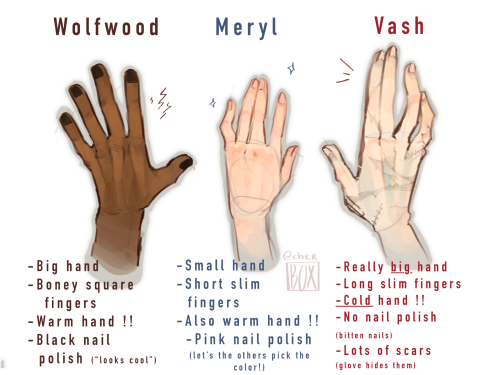
Mashwood hands Hcs!! Because they’re rotting my brain :DD
work hacks for massage therapists part 1 (joke)
It's a stinking hot summer afternoon and the client doesn't want the fan on, or perhaps a frosty winter morning with the heaters on full blast. It's time to get creative: your sweat dripping onto the client's back isn't sweat, it's essential oil. Sea salt and musk. Why yes, of course it's supposed to be this pungent, it's for clearing the sinuses. You're welcome.
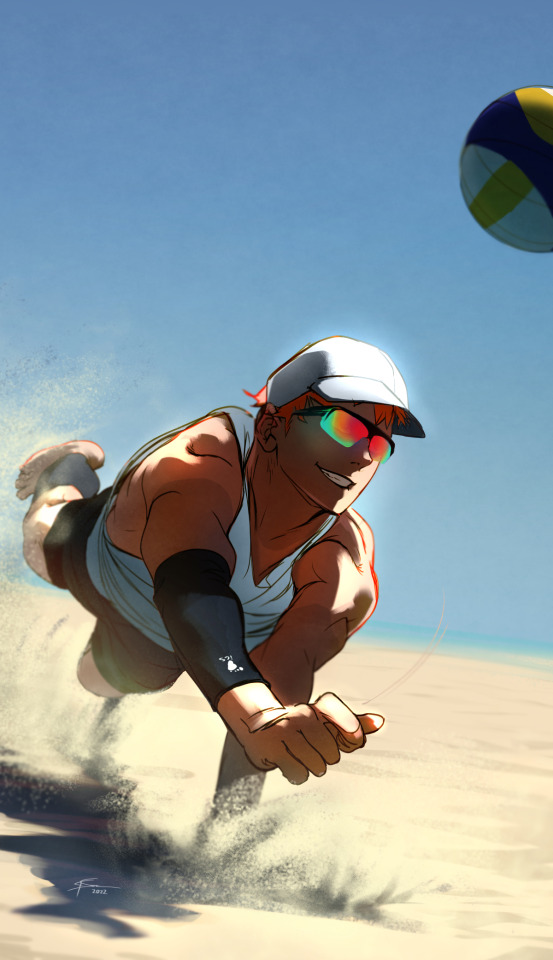
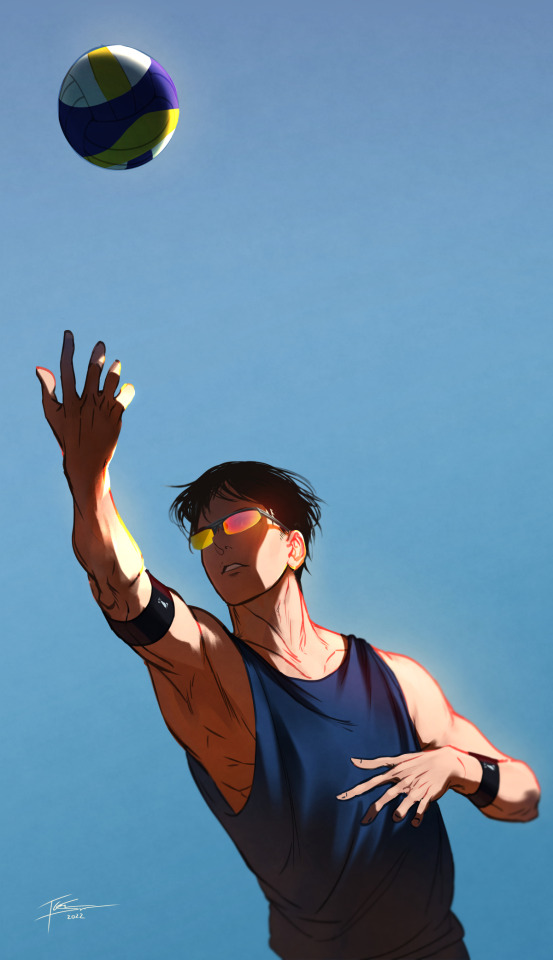

Beachvolley Day Blueberry Beach Vibes |100222 - Tangerine Tan |140222 - Timeout |280722
Language Barrier
The shaman fight (both the prelims in Tokyo and the finals in the USA) have people from all over the world competing and everyone seems to speak the same language. In real life, it’s for the convenience of the readers/watchers. In universe, I can only assume that the King of Spirits has granted everyone the power to magically understand/be understood by others regardless of what language they speak. Also, maybe the Oracle Bells help tournament participants walk around without their weapons being noticed by police or border control?
Has this been mentioned somewhere in the manga or bonus material?
Trimax dump
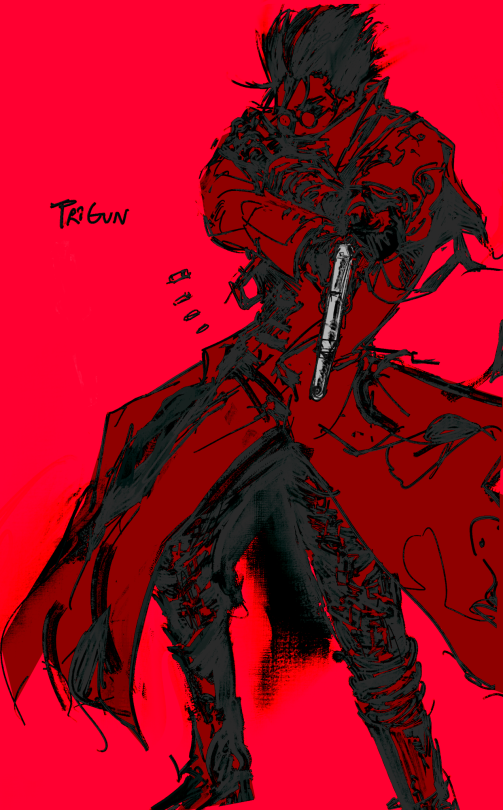
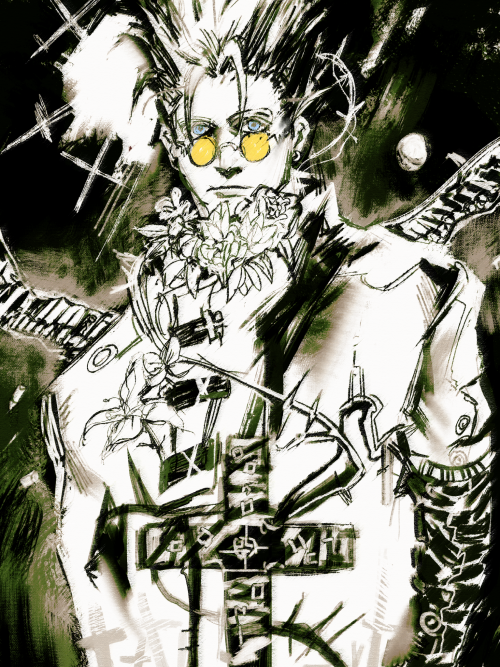
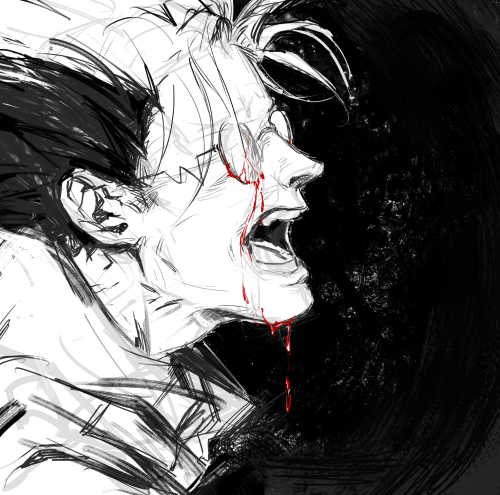


a good aroace manga







Recently found this lovely manga at my library with what seems to me like great aroace representation! 'I want to be a wall' by Honami Shirono.
It's about an aromantic asexual woman and a gay man who marry for appearances and become close friends. (In Japan, asexual and aromantic are often referred to as the same thing, which is explained in the volume translation notes btw)
Here's a few pages that I thought did a good job of discussing things. As an enby who likes romance in stories (especially BL) but not so much in real life, I felt pretty seen.
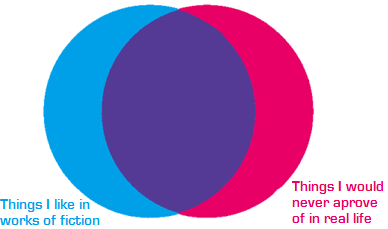
This has been a PSA.
Trigun: Stampede, Wolfwood, and Food
So, I think a major part of any worldbuilding should always involve food, and where it comes from. The worldbuilding around No Man's Land in Trigun: Stampede is a little tricky in this regard, since there's shown to be no real agriculture or plant life (Meryl's utter shock at the "flora" on Ship Three as a total foreign phenomenon suggests it's more rare than in the manga) so sustainable human-friendly food sources are rare and not really addressed. We see characters eating worms, and presumably there's whatever it is worms eat, and beyond that, it's suggested that pretty much all of humankind's nutrition comes from plants.

The desert dudes living off worm meat refer to "plant-based food" as an "extravagance" in the opening scene of episode 4 (aptly named "Hungry"). Meryl, by contrast, is grossed out by the idea of eating worm meat -- I think we can infer then, that Meryl, being a college-educated city girl, probably had regular access to Plant-generated food, while Outlanders are more dependent on alternative sources of nutrition.
Wolfwood, I think, falls closer to the latter category -- He's very used to eating worms, as we see in this episode, not even flinching at grabbing and devouring a whole worm, and even smoked dried worm legs as a kid in a later flashback, so supplementing his diet and other aspects of his life with worms is probably something he's used to doing for survival:


And I gotta say, the way Wolfwood antagonizes the others about eating worm-based food?


Yeah, it's a power play in some respects -- he's making a point to Vash about 'kill or be killed' to survive when he catches and throws a worm at him, and he's taunting Meryl to get a rise out of her with the roasted worm meat at the end of the episode.
But there's something very "Gross Big Brother" about it -- he's antagonizing them, but there's also some underlying level of care in it. He is showing Vash how Wolfwood thinks it's necessary to survive; he's bullying Meryl into eating the food that's available, because Wolfwood probably grew up with the understanding that you couldn't afford to turn your nose up at whatever food you got.

It's food, it's there, it's a valuable and scarce resource, and as much of an asshole as Stampede!Wolfwood is, he has those ingrained big brother instincts to look out for those around him. And food is an important part of that, because when you live with scarcity, food is life.

The whole bit with Zazie in disguise might be a charade (assuming Wolfwood already clocked Zazie from the get-go and it didn't take the worm devouring them for that card to be revealed) but it still pulls from Wolfwood's characterization in the '98 anime where he gives two of his last pieces of food to a couple of hungry-looking kids:

And the sentiment of "you still deserve to eat" as an expression of care is still real for him, especially given his smile when Vash repeats his words, finally eating some of the worm meat at the end of episode four:

Our worldbuilding implication is that food is scarce and rare in the Outlands, and Wolfwood is someone who knows how to survive by any means possible -- including eating whatever is available -- which is something he's nonetheless willing to share with others, because at his core he's a decent person who isn't as selfish as he may pretend to be.
And food is one hell of a love language.
Next year marks twenty years since the Charlie and the Chocolate Factory film was released, and I'm wondering what a 2025 remake would look like.
The kids still have their gimmicks, but on social media. Augustus has a food blog. Veruca posts her shopping hauls on Tiktok. Violet has her own chewing gum line. Mike streams his gaming.
The Bucket family have two, maybe three ancient flip top phones between them on the cheapest prepaid plan available.
At the factory entrance Wonka demands all phones be handed in or turned off inside, no filming allowed. Maybe the factory has its own, very weird intranet system that does odd things to outside devices when you try to secretly film stuff? Could be a good modern update to the story so long as social media adds to the wackiness instead of taking over.
-
 ladyinrosso reblogged this · 1 month ago
ladyinrosso reblogged this · 1 month ago -
 akemery8 liked this · 4 months ago
akemery8 liked this · 4 months ago -
 bionic-jaden reblogged this · 7 months ago
bionic-jaden reblogged this · 7 months ago -
 w00dp3cker liked this · 8 months ago
w00dp3cker liked this · 8 months ago -
 ikethetimidbean liked this · 10 months ago
ikethetimidbean liked this · 10 months ago -
 ghostienonbibi liked this · 10 months ago
ghostienonbibi liked this · 10 months ago -
 sneezegoblin liked this · 11 months ago
sneezegoblin liked this · 11 months ago -
 deludedfantasy reblogged this · 11 months ago
deludedfantasy reblogged this · 11 months ago -
 deludedfantasy liked this · 11 months ago
deludedfantasy liked this · 11 months ago -
 trigun-post-archive reblogged this · 1 year ago
trigun-post-archive reblogged this · 1 year ago -
 sweetyuris liked this · 1 year ago
sweetyuris liked this · 1 year ago -
 loreshark liked this · 1 year ago
loreshark liked this · 1 year ago -
 ithinkididitright liked this · 1 year ago
ithinkididitright liked this · 1 year ago -
 aspergianstoryteller reblogged this · 1 year ago
aspergianstoryteller reblogged this · 1 year ago -
 aspergianstoryteller liked this · 1 year ago
aspergianstoryteller liked this · 1 year ago -
 gaycowboyjesus reblogged this · 1 year ago
gaycowboyjesus reblogged this · 1 year ago -
 gaycowboyjesus liked this · 1 year ago
gaycowboyjesus liked this · 1 year ago -
 toravii reblogged this · 1 year ago
toravii reblogged this · 1 year ago -
 sourdough777 liked this · 1 year ago
sourdough777 liked this · 1 year ago -
 darkclouds-rainsounds reblogged this · 1 year ago
darkclouds-rainsounds reblogged this · 1 year ago -
 liberoam liked this · 1 year ago
liberoam liked this · 1 year ago -
 billyjoecobra liked this · 1 year ago
billyjoecobra liked this · 1 year ago -
 ladyinrosso reblogged this · 1 year ago
ladyinrosso reblogged this · 1 year ago -
 lrna-starslayer liked this · 1 year ago
lrna-starslayer liked this · 1 year ago -
 desert-star-oasis reblogged this · 1 year ago
desert-star-oasis reblogged this · 1 year ago -
 ograntersofdarkdisgrace reblogged this · 1 year ago
ograntersofdarkdisgrace reblogged this · 1 year ago -
 somefapmaterial liked this · 1 year ago
somefapmaterial liked this · 1 year ago -
 squeemez reblogged this · 1 year ago
squeemez reblogged this · 1 year ago -
 kai-fawn liked this · 1 year ago
kai-fawn liked this · 1 year ago -
 cincreblog liked this · 1 year ago
cincreblog liked this · 1 year ago -
 heartlessyin liked this · 1 year ago
heartlessyin liked this · 1 year ago -
 pqwder liked this · 1 year ago
pqwder liked this · 1 year ago -
 fadingdreamworld liked this · 1 year ago
fadingdreamworld liked this · 1 year ago -
 sharktastic22 liked this · 1 year ago
sharktastic22 liked this · 1 year ago -
 queensoldfashionedloverboy liked this · 1 year ago
queensoldfashionedloverboy liked this · 1 year ago -
 ihaveaprettybluearmchair liked this · 1 year ago
ihaveaprettybluearmchair liked this · 1 year ago -
 wispywindss liked this · 1 year ago
wispywindss liked this · 1 year ago -
 ketamine-boy liked this · 1 year ago
ketamine-boy liked this · 1 year ago -
 s3rotonin liked this · 1 year ago
s3rotonin liked this · 1 year ago -
 cubby-ko-chan liked this · 1 year ago
cubby-ko-chan liked this · 1 year ago -
 kingkenzieofmold liked this · 1 year ago
kingkenzieofmold liked this · 1 year ago -
 feu-eau liked this · 1 year ago
feu-eau liked this · 1 year ago